detail profile alfredo kraus
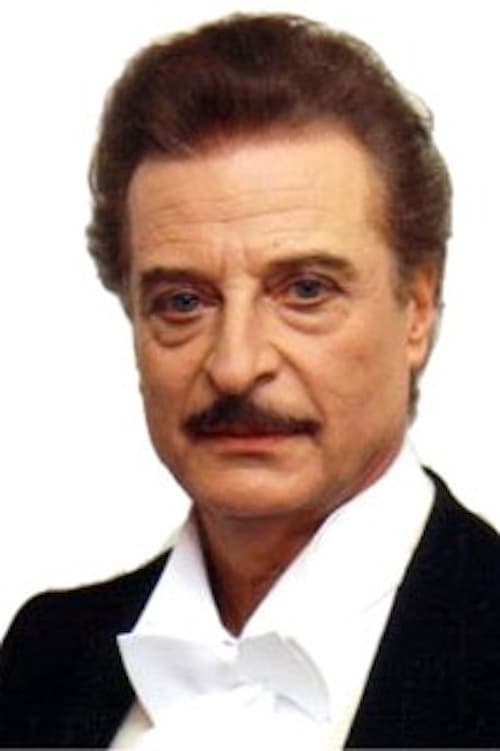
Riwayat Hidup
Alfredo Kraus Trujillo (24 November 1927 – 10 September 1999) was a distinguished Spanish tenor from the Canary Islands (known professionally as Alfredo Kraus), particularly known for the artistry he brought to opera's bel canto roles.
He was also considered an outstanding interpreter of the title role in Massenet's opera Werther, and especially of its famous aria, "Pourquoi me réveiller?"
Kraus was born in Las Palmas de Gran Canaria.
His father was Austrian and his mother was Spanish.
He began his musical career with piano lessons at the age of four, and he sang in the school choir by age eight.
His older brother, Francisco Kraus Trujillo, a baritone, studied music and opera alongside him.
After refining his technique singing Spanish zarzuela on stage in Madrid and Barcelona, Kraus made his professional opera debut in Cairo during 1956 as the Duke in Rigoletto, which became one of his signature roles.
In 1958, he sang Alfredo at the Teatro Nacional de São Carlos in Lisbon in a production of La traviata with Maria Callas, a live recording of which was later released.
Kraus made his Covent Garden debut as Edgardo in Lucia di Lammermoor in 1959 and his La Scala debut as Elvino in La sonnambula in 1960.
He made his American debut with Lyric Opera of Chicago in 1962, and his Metropolitan Opera debut in 1966 in Rigoletto, the role of his last performance there in 1994.
In subsequent decades, Kraus extended his repertoire to include more Italian operas such as Lucrezia Borgia, La fille du régiment, Linda di Chamounix, Don Pasquale and La favorita by Donizetti; and French operas such as Roméo et Juliette, Les contes d'Hoffmann, Faust and Lakmé, while continuing to sing his hallmark roles of Werther and of Des Grieux in Manon.
He also recorded a number of rarely performed French operas including La jolie fille de Perth and Les pêcheurs de perles, both by Georges Bizet, and La muette de Portici by Daniel Auber.
He also performed in some very well known works, such as Don Giovanni and Faust.
Kraus came to be virtually synonymous with such lyric tenor roles as Werther, Faust, Don Ottavio (Don Giovanni), Nemorino, and Arturo.
He was also known for his performances of Spanish music, notably many classics from the zarzuela repertoire, which he continued to perform live on stage in Spain until the end of his career, and many of which he recorded complete for EMI Spain as well as for his own label, Carillon.
Thanks to his superlative technique and careful husbanding of his vocal resources, Kraus sang onstage until his early 70s.
He studied voice technique in Milan with Mercedes Llopart.
Kraus was also noted for extremely refined musicianship, accompanied by a seemingly effortless high register.
As a result, many opera connoisseurs consider him to be one of the best tenors of the end of the 20th century.
He was admired for his cultivated musical education and his complete respect for his chosen profession.
His first priority was the integrity of his artistic interpretation of a piece, rather than his formidable range and excellent technique.
.
.
.
Source: Article "Alfredo Kraus" from Wikipedia in English, licensed under CC-BY-SA 3.
0.
Info Pribadi
Peran Yang Di Mainkan Alfredo Kraus
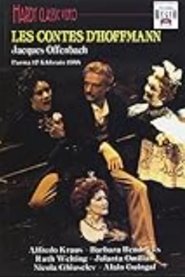 Despite the multitude of characters and...
Despite the multitude of characters and...The Tales of Hoffmann - Teatro Regio di Parma, 1988 1988
"Despite the multitude of characters and situations, the plot is simple: the eternal flow of life. It is based on Les contes fantastiques d’Hoffmann, a play by Jules Barbier and Michel Carré, who were inspired by some of the stories of the German E.T.A. Hoffmann. On a drunken night in the city, Hoffmann tells how he courted and lost three girls, his impossible loves: Olympia, a mechanical doll that only he believes to be truly human; Giulietta, the courtesan who steals his reflection in a mirror; and Antonia, a young woman who sings until she literally dies." Venue & Opera Company: Teatro Regio di Parma Recorded: 1988 Singers: Alredo Kraus, Ruth Welting, Jonathan Omilian, Barbara Hendricks, Elena Zilio, Nicola Gjiuselev, Bruno Buulgarelli, Francis Egerton, Aldo Bottion Orchestra: Orchestra Sinfonica dell'Emilia-Romagna "Arturo Toscanini" Chorus: Coro del Teatro Regio di Parma Chorus Master: Adolfo Tanhzi Stage Director: Beppe de Tomasi
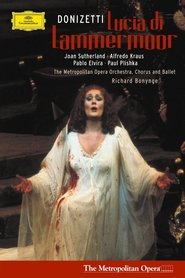 This telecast offers a rare opportunity...
This telecast offers a rare opportunity...Lucia di Lammermoor 1983
This telecast offers a rare opportunity to see the legendary Joan Sutherland in the role that first catapulted her to international stardom. She drove audiences wild by the way her opulent voice caressed the music’s long phrases and sprinted effortlessly through the fiendish runs, trills, embellishments and stratospheric high notes. One of the glories of the operatic world, her portrayal of Donizetti’s hapless heroine is a multifaceted and moving characterization. The incomparable tenor Alfredo Kraus is Edgardo, the man Lucia loves but cannot have. (Performance taped November 13, 1982. Broadcasted September 28, 1983.)
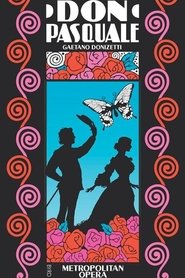 This John Dexter production designed by...
This John Dexter production designed by...Don Pasquale 1979
This John Dexter production, designed by Desmond Heeley, was a parting gift to the great American soprano Beverly Sills, who bid farewell to the Met as Norina, the smart young widow at the center of Donizetti’s comedy. The sensational Alfredo Kraus sings her beloved Ernesto. Håkan Hagegård, in his Met debut role and season, is Dr. Malatesta, the man who helps the young couple trick the crusty old bachelor of the title (Gabriel Bacquier at his comical best) into a fake marriage. This being a Donizetti comedy, it all turns out perfectly well at the end—and getting there is pure operatic fun.
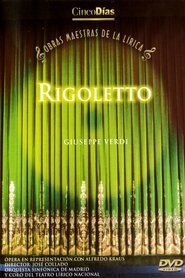 Rigoletto hunchbacked jester plans to take...
Rigoletto hunchbacked jester plans to take...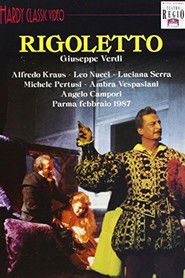 Kraus Nucci Serra Pertusi Vespasiani Chour...
Kraus Nucci Serra Pertusi Vespasiani Chour...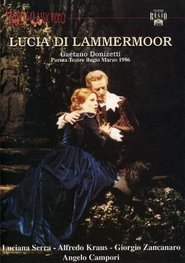 1986 production of Donizettis opera at the...
1986 production of Donizettis opera at the...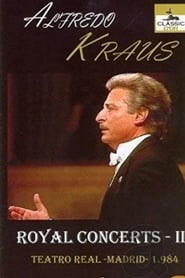 Alfredo Kraus Concert in Madrid Teatro...
Alfredo Kraus Concert in Madrid Teatro...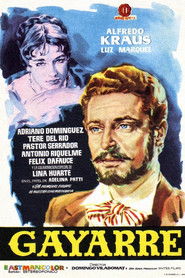 The film is a biography of...
The film is a biography of...